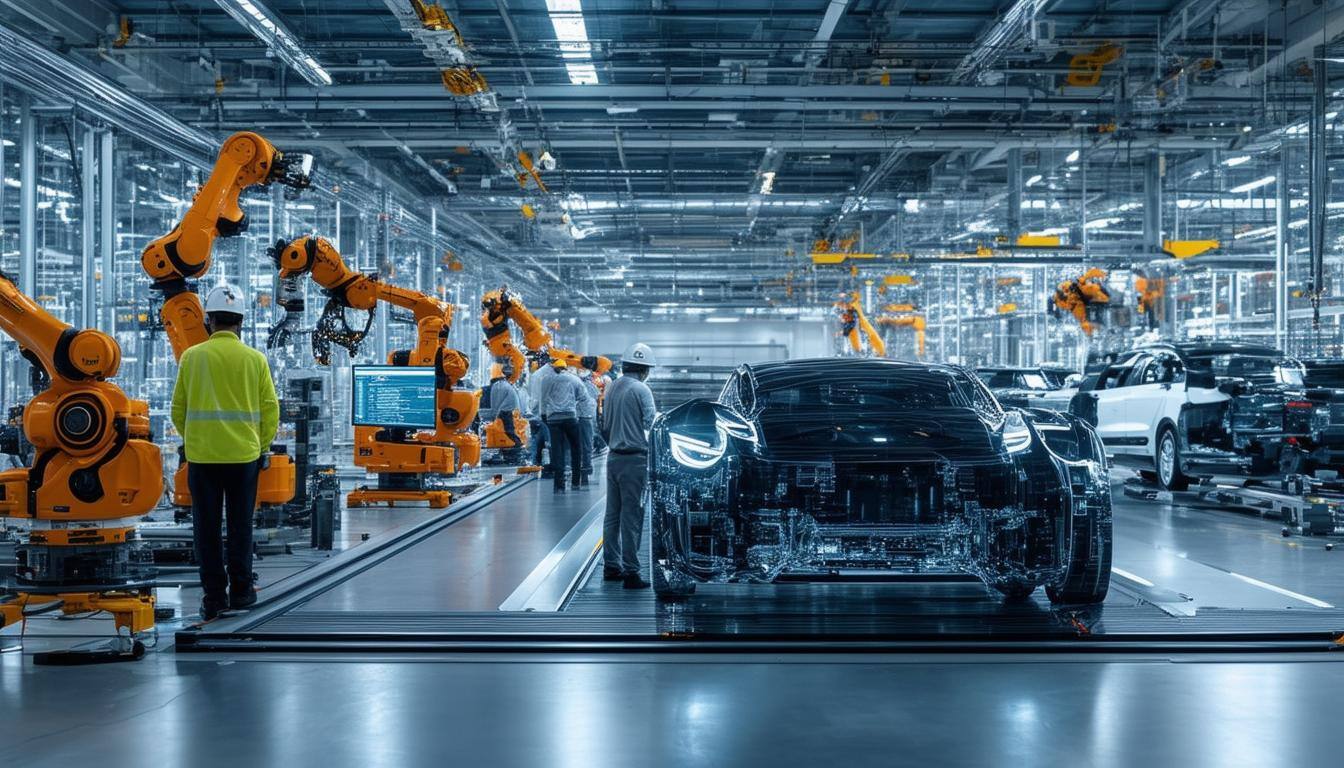Artificial Intelligence (AI) is revolutionizing the automotive supply chain, offering unprecedented efficiency, cost savings, and innovation.
Real-Time Data Analysis for Smarter Decision Making
The automotive supply chain is a complex network involving numerous stakeholders, from suppliers and manufacturers to distributors and customers. Real-time data analysis powered by AI can transform this landscape by providing actionable insights instantly. AI algorithms can process vast amounts of data, such as production schedules, inventory levels, and shipping statuses, to identify inefficiencies and recommend improvements.
For instance, automotive giant BMW has implemented real-time data analysis to enhance its manufacturing processes. By analyzing data from its production lines, BMW can predict potential bottlenecks and take proactive measures to avoid them, thus ensuring seamless operations.
Transforming Automotive Logistics with AI-Powered Predictive Analytics
Predictive analytics, driven by AI, is a game-changer for automotive logistics. By forecasting demand and optimizing delivery routes, companies can reduce lead times and enhance customer satisfaction. Predictive models can analyze historical data and current market trends to anticipate future demand, allowing manufacturers to adjust their production schedules accordingly.
Ford Motor Company has leveraged AI-powered predictive analytics to streamline its supply chain. By predicting parts shortages and adjusting procurement strategies in advance, Ford has minimized disruptions and maintained a consistent production flow.
AI-Driven Inventory Management: Reducing Costs and Increasing Efficiency
Effective inventory management is crucial for minimizing costs and ensuring timely delivery of products. AI-driven inventory management systems can monitor stock levels in real-time, predict demand fluctuations, and automate reordering processes. This reduces the risk of overstocking or stockouts and ensures that the right parts are available when needed.
Toyota has successfully implemented AI-driven inventory management to optimize its supply chain. By using AI algorithms to analyze sales data and inventory levels, Toyota has achieved significant cost savings and improved operational efficiency.
Enhancing Quality Control with Machine Learning
Quality control is a critical aspect of the automotive supply chain. Machine learning algorithms can analyze production data to identify defects and predict potential quality issues before they escalate. This proactive approach ensures that only high-quality products reach the market, reducing recalls and enhancing brand reputation.
General Motors (GM) has integrated machine learning into its quality control processes. By analyzing data from various production stages, GM can detect anomalies and take corrective actions promptly, thereby maintaining high-quality standards across its product range.
Case Studies: AI Success Stories in the Automotive Supply Chain
Numerous automotive companies have successfully implemented AI to optimize their supply chains. For example, Volkswagen Group has utilized AI to improve its logistics operations. By analyzing data from its supply chain network, Volkswagen can predict potential disruptions and reroute shipments to avoid delays.
Similarly, Tesla has harnessed the power of AI to manage its complex supply chain. By using AI algorithms to forecast demand and optimize production schedules, Tesla has been able to scale its operations rapidly while maintaining high levels of efficiency.





